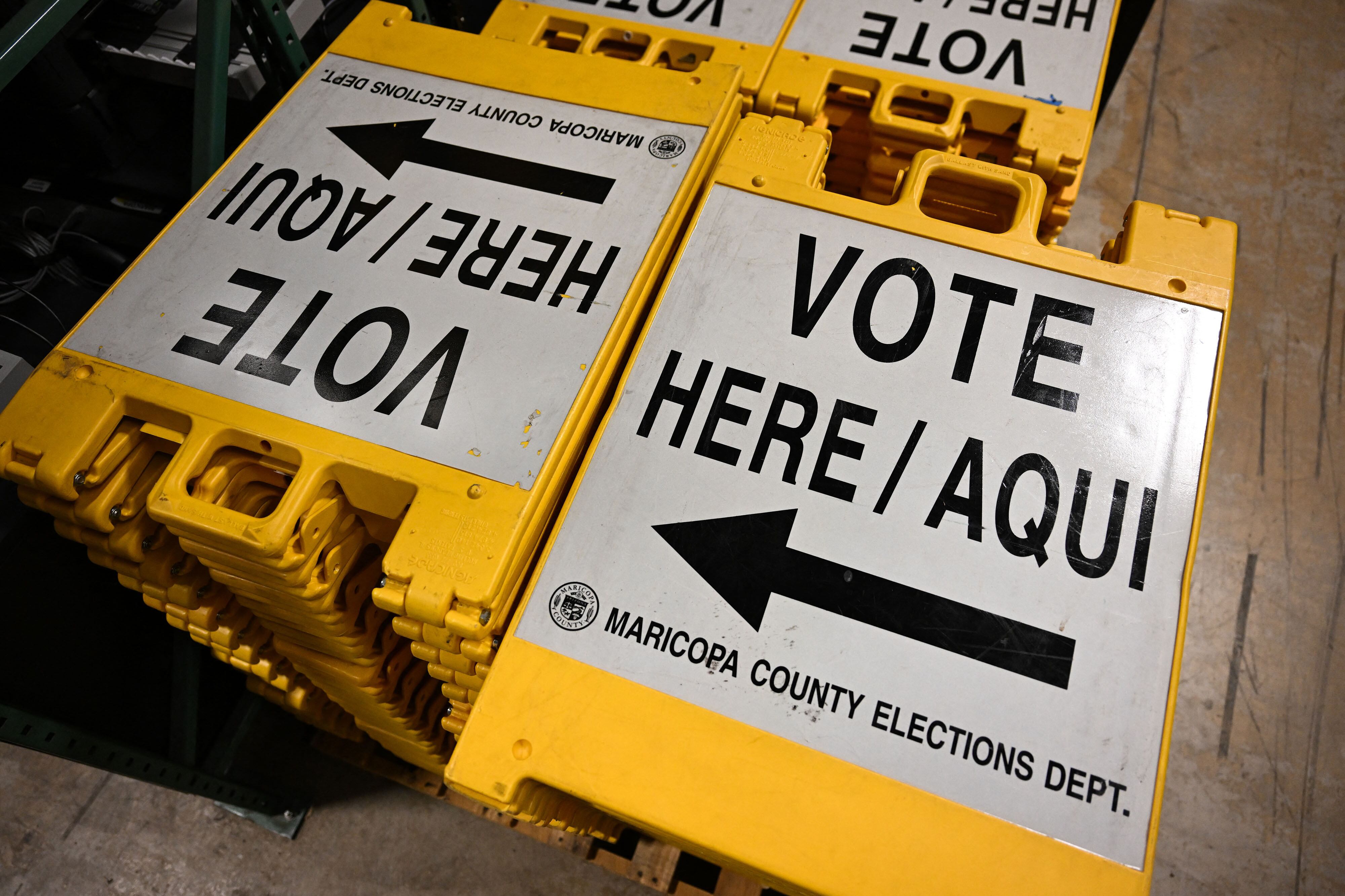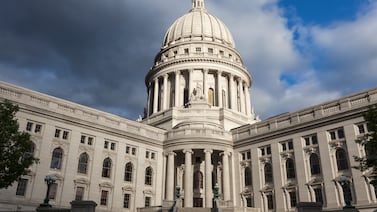Votebeat is a nonprofit news organization reporting on voting access and election administration across the U.S. Sign up for Votebeat Arizona’s free newsletter here.
Update, Aug. 22: The U.S. Supreme Court partially granted an emergency stay reinstating a state law requiring Arizona residents who cannot provide documentary proof of citizenship to register to vote using a rarely used federal form rather than a more widely used state form. Under Arizona law, such residents are only permitted to vote in federal elections, regardless of how they registered.
Update, Aug. 2: On Aug. 1, a panel of judges on the 9th U.S. Circuit Court of Appeals vacated the initial panel’s temporary ruling to block voters registering with the state form without providing documented proof of citizenship. Those registrants will now be added to the voter rolls, but will only be allowed to vote in federal elections, as was the practice before the initial panel’s ruling.
Arizona residents who try to register to vote with the widely used state form will have their registration rejected unless they provide proof of U.S. citizenship, under a temporary ruling Thursday from a federal appeals court.
Previously, residents without citizenship documents would have been allowed to use the state form, which almost all Arizonans use, to get registered, but they could vote only in federal elections — for U.S. House, Senate and president. That’s because Arizona law requires voters to provide proof of citizenship to register, whereas federal law requires only an attestation that a voter is a citizen, but not documentation proving it.
Under a 2013 U.S. Supreme Court ruling, the state must permit voters who registered without citizenship proof to cast ballots in federal elections, so Arizona has maintained separate rolls of so-called federal-only voters.
Thursday’s decision, by the 9th U.S. Circuit Court of Appeals, granted a partial stay of a lower-court ruling that struck down newer Arizona laws on federal-only voters. As long as the stay is in place, those voters can register to vote and cast ballots in federal elections only if they use a federal voter registration form, something few people currently do.
The stay will be in place until an appeals panel hears the case, currently scheduled for September. While it’s in force, a county recorder could be charged with a felony for knowingly adding a registrant using the state form to the voter rolls without proof of citizenship.
The court’s decision upends voter registration practices set by a 2018 consent decree requiring officials to accept the state forms even without proof of citizenship.
Two 2022 laws sought to restrict federal-only voters
The case before the appeals court began when Republicans enacted two laws in 2022 that restricted how federal-only voters could participate in elections, and required frequent voter citizenship checks. Around a dozen voting rights groups sued to try to block the laws, saying they were discriminatory and violated several aspects of federal voting laws.
The U.S. District Court of Arizona ruled in May that substantial portions of the 2022 statutes did violate federal law.
Republican legislative leaders and the state Republican Party then asked the appeals court to temporarily suspend parts of that ruling. The temporary stay grants one part of that request.
Proof of citizenship has emerged as a flashpoint as Republican leaders both nationally and locally characterize voting by noncitizens as a problem that merits a legislative solution. They’re pushing for a federal law that would require voters to produce documented proof of citizenship in order to vote in federal elections. Legislation that would require that recently passed the GOP-led House and is awaiting a vote in the Senate.
Experts say, however, that voting by noncitizens is extremely rare, and is already illegal under federal law. Any noncitizen who attempts to vote would be risking a felony charge and jeopardizing their residency status.
State Senate President Warren Peterson, a Republican, hailed the appeals court ruling as “a victory for election integrity in Arizona.”
Arizona election lawyer Jim Barton, who often represents progressive organizations, called the ruling “bad news,” as it temporarily puts in place a restriction that he believes will suppress voters. He said he hopes that the decision is reversed quickly.
Groups that register voters suggested it would make them more likely to encourage use of the federal voter registration form if a voter doesn’t have immediate access to citizenship documentation, so the voter could cast ballots in the presidential and congressional elections.
Federal-only voters more likely to be young
The appeals court’s ruling puts one aspect of the lower court’s decision on hold, but the court declined Republicans’ request to suspend parts of the ruling that would have blocked federal-only voters from voting for president or by mail.
A Votebeat analysis of the 32,000 voters on the federal-only list as of last year found they’re more likely to be young residents and residents living on or around college campuses. Other research has found that newly naturalized voters are also more likely to be on the federal-only list.
Kyle Nitschke, co-executive director of the Arizona Students’ Association, called the ruling “horrific.”
Nitschke said that the ruling will change how the association conducts voter registration drives leading up to the election. Instead of telling someone without proof of citizenship to use the state form and provide proof to their county at another time, Nitschke said, the organization will probably ask that they register using a federal form.
Jen Fifield is a reporter for Votebeat based in Arizona. Contact Jen at jfifield@votebeat.org.




